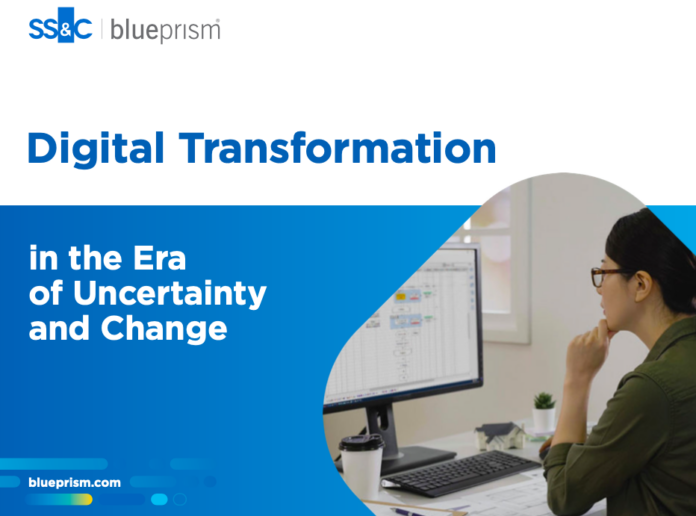More than a third (35%) of businesses in Singapore will use automation to support staff to perform tasks, as they adapt to challenging economic conditions, according to a report from SS&C Blue Prism.
The poll of 94 decision makers in Singapore was part of a broader study in the Asia-Pacific region., including 244 leaders from Australia, Hong Kong, India, and Thailand.
Fewer businesses in Singapore are turning to automation to support staff, compared to the average of 44% across all markets studied.
The research found that organisations are being forced to adapt their business models to cope with rising costs, inflation and low unemployment. However, organisational culture and a lack of skills are acting as barriers to successful transformation.
More than three quarters (77%) of Singaporean businesses are likely to make changes to their business model to contest with economic climate (73% across all markets).
Also, 43% are looking to reduce their operating costs (54% in APAC), while 49% seek to diversify their product offerings (45% in APAC).
Businesses are turning to automation to support their workforce and better serve their customers, rather than cutting jobs. In fact, only 18% said they will look to reduce the size of their workforce as a response to the current economic climate.
However, Singaporean businesses are more likely to reduce the size of their workforce, compared to the average across all markets of 14%.
More than two in five (44%) decision makers say the primary use of automation is to remove repetitive tasks, so that workers can focus on more valuable work (APAC average 39%).
While 44% use automation to support customer-facing services (29% in APAC), 32% say they use automation to help with sophisticated and complex operations (24% in APAC) and 29% use automation for data processing (31% in APAC).
Yet, Singaporean organisations face a cultural and skills barrier to make their transformation efforts a success. More than half of decision makers (55%) say culture or mindset is the biggest barrier to success, compared to 50% across all markets surveyed.
Two-fifths (40%) say they lack skills and resources, and 20% believe there isn’t a strategic approach to transformation.
Dan Ternes, APAC CTO of SS&C Blue Prism in APAC, said that in the current economic climate, it seems that all businesses must adapt if they expect to prosper.
‘How they approach this transformation will be the key to their success,” said Ternes. “Creating a culture where teams are consulted and engaged throughout the process is the recipe for success, rather than delivering a mandate from on high.”
He added that despite the negative headlines about generative AI taking people’s jobs, the data in this report shows that employers don’t intend to use automation as a vehicle to replace their human workforce.
“In fact, employers are turning to automation to ease workers’ lives, so they can focus on more interesting and rewarding tasks,” he said. “Creating a seamless link between your digital and human workers facilitates their collaboration which is a key ingredient for success with transformation.”
Findings also show that 46% of decision makers believe that a top-down approach to transformation is most successful.
Among respondents, 63% believe that improving customer touchpoints for better service and capability is the key priority of digital transformation in the current economic climate.
Further, 12% feel that senior leadership isn’t interested or engaged on digital transformation.
















